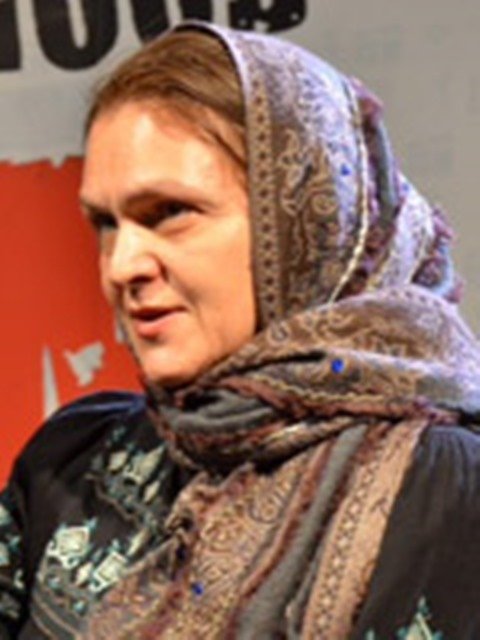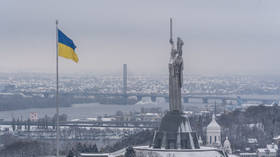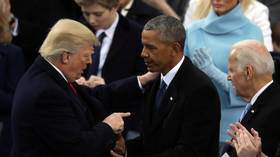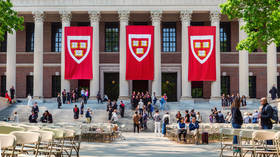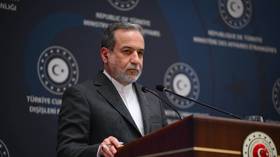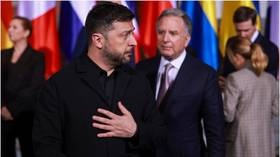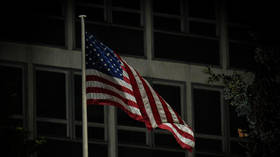‘US came to Afghanistan with TV & cash - they won’t let us go’
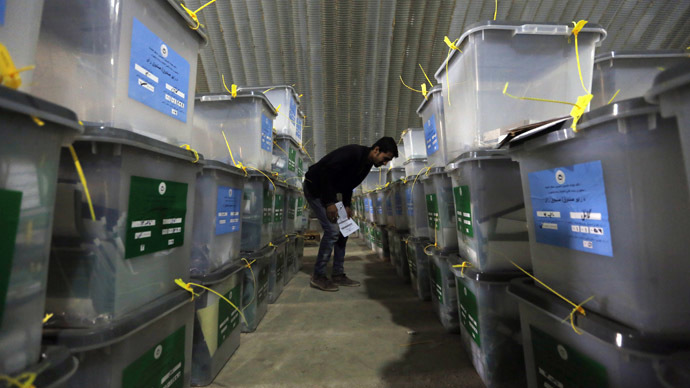
“The Americans never intended to help us build our country. Now Kabul is asking them not to leave Afghanistan so that the Taliban will not attack them,” a Pashtun from Kabul in his Moscow shop muses.
“Just imagine: we had 44 countries invading Afghanistan with modern weapons, satellite monitoring, tanks and missiles. The Taliban has an army of less than 20,000. We have 400,000 Afghan troops and 200,000 Americans with the most advanced weaponry. How is it possible that they can’t prevail over the Taliban?” he says.
A PhD-qualified engineer by profession, he trades a range of Oriental items from hookahs to incense sticks. We’ve been talking about the elections for two hours, with visitors coming in and leaving without being served, and other Afghans joining our discussion with eagerness.
There are only a handful of places in Moscow where you can get a glimpse of people from different Afghan tribes and social strata. One of them is a former hotel in the city suburbs housing a multitude of shops and firms owned by Afghans. They all retain close ties with their homeland, make regular visits and keep daily contact with their families and business partners.
Those who do business in Russia usually have quite a good background and a decent profession. They work here despite the fact the clans they come from fought the Soviet army in 1979-1989. But that was a long time ago. The US army has been in Afghanistan for 13 years and Afghans do not have much respect for either the Americans or those who they support.
Endangered elections
Elections in the east are being increasingly associated with terror acts and mysterious problems with vote counting.
Ironically, political analysts may soon pick up some of the language used by journalists. The developments in Afghanistan and Iraq indicate that elections in a country with a US troop presence are always hailed as success, while a vote in a country left by US troops merely serves as a backdrop for terror attacks.
Curiously enough, in the old Western democracies the elites negotiate before the elections, whereas in Afghanistan, it looks like the election comes prior to negotiations. This seems to be the only explanation as to why it takes them almost three weeks to count the votes, and why they’ve postponed the announcement of the results for the 4th time. The election took place on April 5 and the votes were supposed to be counted by April 24. Then it was postponed to May 14, so that the second round could start on May 28.
I’d like to remind that four years ago, it took Iraq a record four months to count the votes from its election. The current prime minister stayed in office, but his bloc in the parliament lost one vote to the opposition.
The behind-the-scenes struggle continues in Afghanistan. It would be naïve to believe that the Afghan independent commission is unable to count quickly. The clans and advisers just didn’t rush it, as they were fighting for the second round and for the difference in votes.
Right now this difference has become more distinct, when the conventional anti-Americanism pole represented by Abdullah Abdullah got the upper hand over the most pro-American candidate, Ashraf Ghani.
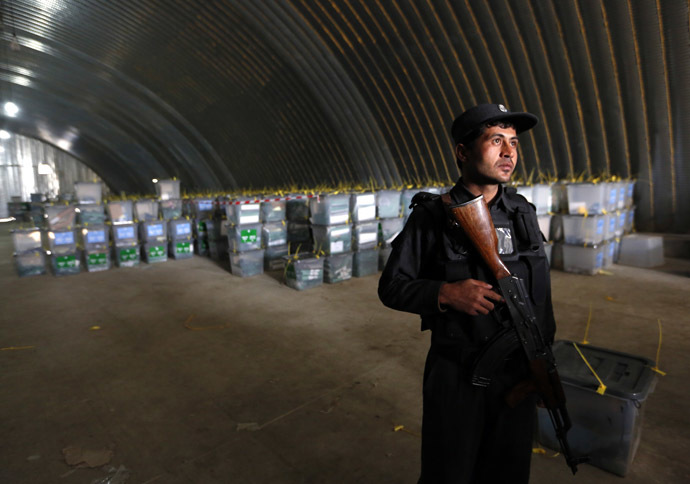
This division is quite feeble though. Before the election they both had stated that they supported the presence of the US troops in the country. Whereas President Karzai finished his tenure with a patriotic gesture of refusing to sign the agreement for the US troop presence. He also took his brother off the presidential candidates’ list and directed his supporters to unlikely candidate Zamlai Rassoul.
At the moment, according to another preliminary count, Abdullah Abdullah wins this election. He looks more or less remote from the occupation forces compared to other candidates. His name is associated with Ahmad Shakh Massoud, who was mysteriously murdered on September 11, 2001. Many believe he was a Mujahideen physician, if not a Mujahideen himself.
Abdullah does have a flaw in his biography. From the viewpoint of a Pashtun, the main Afghan tribe, he is a Tajik, as is his mother. “Can a Tajik rule Afghanistan?” This is something any Pashtun would ask you, unless they are related to the occupation forces. Moreover, his name is related to the reputation of the Afghan Northern Alliance, which welcomed the US presence and had close cooperation with it.
However, for Afghans one’s origin isn’t the main concern. More importantly, these people who really value their independence feel that they have been invaded, in spite of the elections, speeches and promises. The behind-the-scenes war which they sense more clearly than the foreign observers do is a part of this invasion.
Difficult choice
What do the Afghan people think of the election? Most of the Moscow-based Afghans are happy to discuss it, but they don’t want their pictures taken.
Young Pashtuns aren’t very optimistic. I am talking to a Pashtun from Herat. He says he preferred Mohammad Ismail Khan, if anyone. He may be a Tajik but he is a Mujahideen, Herat-born and had been its governor for a long time.
“Otherwise they all are crooks, and all they want is to sell out to the Americans,” he says about the presidential candidates.
I ask him to clarify what’s there to sell in Afghanistan, as none of the shops have any Afghan products.
“What’s there to sell? The whole of Afghanistan,” he answers.
Most Afghans are convinced that their country is a crucial strategic center that the US wants to have just for the sake of it.
A Pashtun from Kabul has no respect for either of the candidates. He believes there was no voter turnout at all. Some of his family members did go to vote, and they told him there was no frenzy there.
A Pashtun called Nabi was born in Laghman. He had spent 10 years in prison during the Soviet presence in Afghanistan. He is an Afghan Marxist, and as most supporters of one Marxist fraction he became imprisoned when the other fraction got the upper hand. Just like many older Afghans, he is an underground revolutionary, a fighter, and a political prisoner who got self-educated while in prison, and his opinions are quite harsh.
The reason he doesn’t support Abdullah is not the fact that he is a Tajik. “Hekmatyar is a Pashtun, but he is also a traitor, just like Abdullah is. And so is Sayyaf - a Pashtun and a traitor,” he says. Marxists are very open about using strong terms.
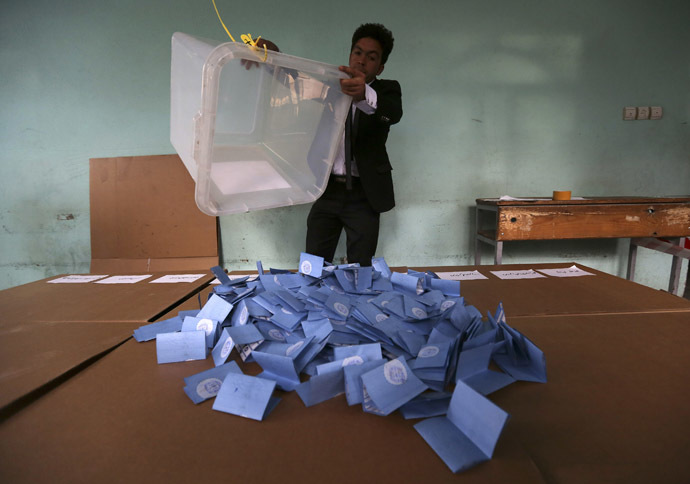
“Abdullah bears the shadow of a traitor, as he had cooperated with everyone, just like his commander, Massoud,” says Nabi. “His people sold our concessions for mineral deposits extraction.”
Nabi prefers Ghani, even though he bears “a stamp of the American past.”
Khusrow, a Tajik from Herat, openly chooses Abdullah because he is Tajik.
“His mother is Tajik, so Pashtuns regard him as a stranger,” he says. “They say that he, who shakes hands with the ruler, will come to power too,” he is trying to say that those people who are on a first-name basis with the authorities are well connected.
“Abdullah will definitely get more votes, but such people as Abdullah can never be president. So Ghani is more likely to become the leader,” he sadly says. “Pashtuns will always rule in Afghanistan, and all the others will play football and fight,” Khusrow predicts.
His Tajik friend who comes from Kabul has moved his family to India.
“I’m not into politics. We didn’t vote for anyone – there is nobody worth voting for.”
The Hazara brothers, Ysa and Nadyr, are split. Nadyr supports Abdullah out of principle.
“Pashtuns didn’t like the Taliban people as well, although they were Pashtuns too. I support Abdullah, not because he is Pashtun, but because he plans for the future,” he says.
He likes it that Abdullah participates in elections together with Mouhakkik who is Hazara.
“He has always been a part of our society, he gets us. He has been our leader for a long time. I think Abdullah will win. Ghani’s deputy Sarwar Danesh is Hazara too. He is pro-Iranian, unlike Mouhakkik, who is not so pro-Iranian. But we just want him to help his people – that’s what matters.”
He hopes Abdullah can make a good president because he is slightly against Pakistan and against the USA.
Ysa doesn’t agree. “Ghani is very experienced. He is like Putin, who looks ahead.”
And that’s when Ysa thinks about the flipside.
“I once asked a politician, why Russia doesn’t supply its missiles to Iran or Syria. He said it’s a policy. Politicians are not trustworthy – today they think this way, the next day they change their mind. Sayyaf had an agreement with the Hazara too, but eventually they got no protection. So the policy is like that: today we are friends, tomorrow we are foes.”
He has no doubt that Ghani is going to win in the second round of the elections.
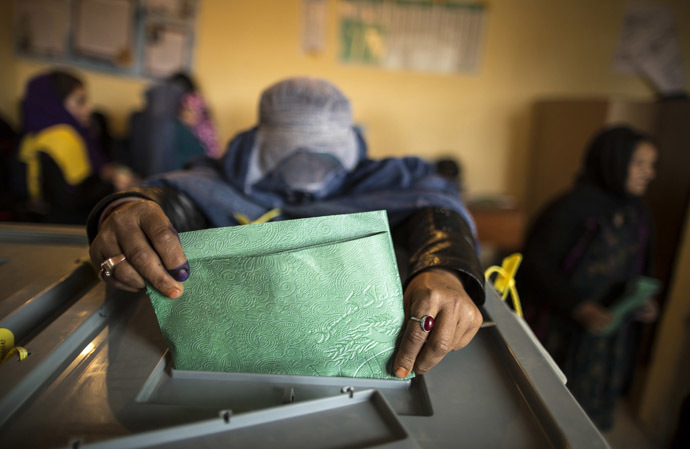
“Do you think Ghani will bring another USA? It was already brought [to Afghanistan] 13 years ago,” Nadyr argues.
“The Americans spent $600 billion in Afghanistan so they will not let us go. They went there to prop up their positions against Russia, China and Central Asia. The US has plans in Afghanistan for 50 years ahead. They will leave at least 10,000 troops there for sure. Ghani appeals to them simply because he is pro-American,” Nadyr says.
Many people in Afghanistan believe the Taliban has been created and imposed by the US too, and it was aimed at taking over the country. Nadyr and Ysa have no doubts about that.
“Some of Ghani’s advisors speak out against the Hazara all the time. Moreover, his wife is not a Muslim, she’s from Lebanon,” which, by the way, is a serious point in Afghanistan.
“Russia came here with tanks, while the US came to Afghanistan with television and cash. It takes a long time for them, but eventually they get what they want. They set up a base here. People are against them and want them to leave, to which Americans respond, “OK, we are leaving.” But there are always those who ask them to stay,” Nadyr says, meaning both candidates are willing to sign the agreement on further presence of the US troops.
“They started the mess in Ukraine while being here and now make troubles in Dagestan. They aim at stirring up troubles in order to isolate Russia from the rest of the world. The Afghan people understand the essence of the US policy quite well now. But Americans also target the young people. There are some who think that since Americans brought television and the internet, they should stay,” Ysa says, apparently not minding. He is among these young people.
“Nothing happens the way we want,” Ysa admits. And that’s true – nobody has asked the Afghan people in the last 35 years what they really want.
The statements, views and opinions expressed in this column are solely those of the author and do not necessarily represent those of RT.
The statements, views and opinions expressed in this column are solely those of the author and do not necessarily represent those of RT.
